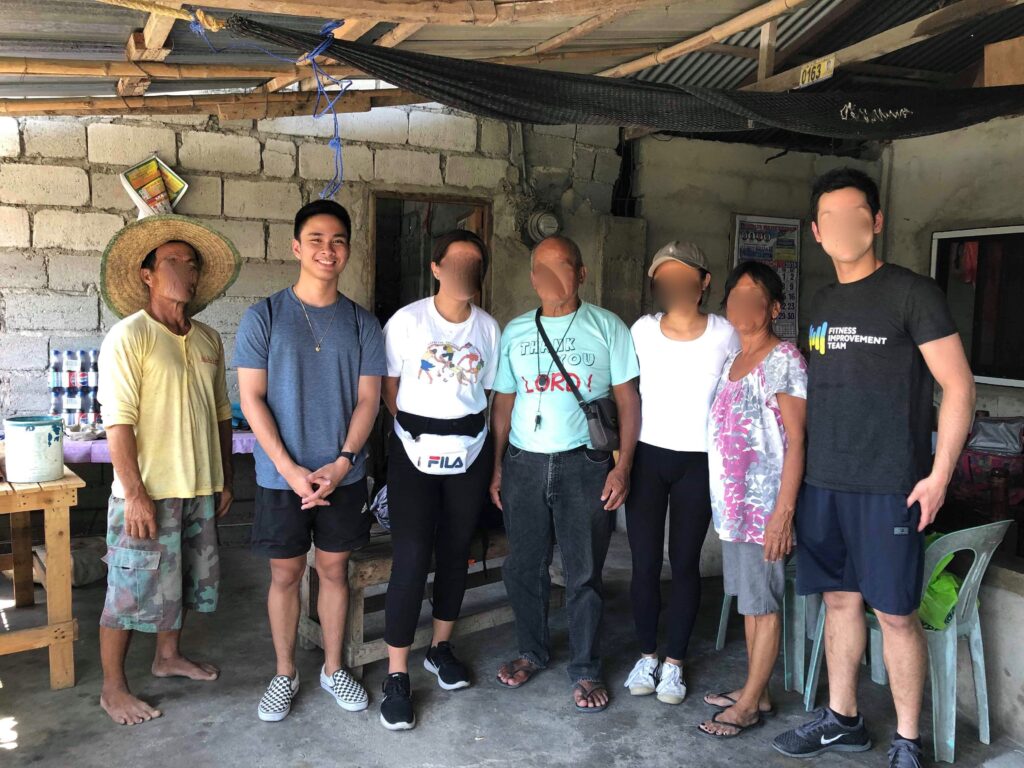This personal experience happened back in my college years when my groupmates and I took a major class (DS130) that required us to undertake an immersion and implement project management based on the needs of the provincial community we were assigned to. The amount of things I learned in that class was immense. I realized how complex the concept of development is. I always thought development was as easy as implementing laws, giving more resources to people, improving technological resources, giving more financial help, and that with these, development in the community would take place.

My perception of development before going through the DS130 course was that to aid in the development of a community meant merely improving the people’s well-being mainly through helping in the financial and economic aspects. To me, it then meant more as a dole-out strategy where I had thought we’d give them what we think they need, hand them what they didn’t have. I realized that those of us from outside the community who may have the best of intentions of helping are coming in with a messianic complex hoping we could “save” them from some situation. Without seeing and knowing what the people actually need, we from the outside come with solutions which may not truly address their concerns. This attitude of ours, I believe, is something we need to change or unlearn. We cannot intervene with ready solutions in mind without fully immersing ourselves in their situation.
I realize there is a need to thoroughly diagnose a community’s situation before we can even think of solutions. And these solutions or interventions should be worked out with the involvement of the community’s constituents. Analyzing their conditions however may not be an easy task. For someone who comes from the outside, to get a pulse of the people’s needs/concerns it would be more beneficial if one stayed in the community for a more lengthy period so one can actually be witness to their day-to-day routine and interactions.

Through this immersion experience, I learned that development in whatever form is very difficult to define as it is a very complex concept. Clearly, if something is difficult to define then it would be difficult to measure as there will be uncertainty over what should be measured to arrive at solutions or interventions. Developmental problems are complex in the sense that making progress involves understanding a situation from different perspectives, tackling different problems, and listening to what people say and feel about their situation.
The important thing I learned is that in tackling developmental problems, you do not bring with you hand out pre-packaged solutions. You need to take into account all the problems in the community and break these down to get to their root causes. Field experience is crucial when working on development as it gives you a more hands-on feel of what actually is going on, on the ground. Commitment to the task is key also as there could be a lot of work to do. Work here could mean exhausting all research methods like observation, casual interviews with the community, as well as identifying any leadership styles that may be prevailing in the community that affect the relationships within.
Development is not just about the improvement of the well-being of the community and you cannot bring it about simply by just making the people in the community better off economically. Working on development, you need to consider how the constituents, the people organizations, other stakeholders, institutions, local government and the state of the community interact with one other. It is important to see how relationships are forged within the community and determine if there are any prevailing leadership or hierarchical patterns, whether official or non-official which affect community life. Only then can we arrive at an accurate assessment and map out an intervention addressing the real concerns of the people. They have to be involved in the process of problem identification and designing solutions to this. This experience has taught me to be more meticulous in “measuring” development, and to be more discerning in identifying problems and formulating interventions. I would have to claim that I learned how to better assess a situation in a more organized and systematic way and to exhaust all research methods to arrive at a better evaluation of a situation. I have acquired a better understanding of various ways of taking in or collecting information that can lead to various versions of development.
This experience of mine reminded me of our sustainable development discussion during the Certified Training Program, the story of Hong Kong’s economic boom, and Population and the Wealth of Nations by William McGurn. Specifically how countries in East Asia, like Hong Kong, overcame the development challenges in economic growth. According to McGurn, “no fixed level of resources, no natural capacity, no predefined limit to what people might do if given the opportunity to exercise the real factors in development.” The economic situation of these countries proved too small for their population and the potential of their human capital. And so, they shifted their focus on the people/citizens, and viewed them as the most valuable natural resource in developing the economy. This is very similar to what I experienced as I myself brought out pre-packaged solutions to the community without fully immersing myself within the community. My groupmates and I were able to arrive at a fairly accurate assessment of the problems and brought the community into the fold in how to address their concerns. It was very important to bring the community together and give them the ability and the power to speak for themselves and work together to deal with their concerns. It was crucial for them to be part in the formulation of interventions as they are the “community”, and they know the ins and outs. Both my experience and Hong Kong’s story is that when the human person is given empowerment, the human-intelligence will bring out development in a community.
Personally, in my continued pursuit of humanitarian work, it is my dream to one day work for the United Nations. I believe that understanding the value of an immersive experience, feeling the pulse of the people/situation and the value of social interaction is key for an effective humanitarian response. I hope one day to be able to make significant change into people’s lives by helping them realize and appreciate/understand their situations thereby allowing them to improve their welfare and happiness.
Published: April 27, 2022
This blog entry was written by Enrico, a WYA Asia Pacific intern from The Philippines. Interested in becoming an intern for WYA? Visit bit.ly/aponlineinternship2022 today!







